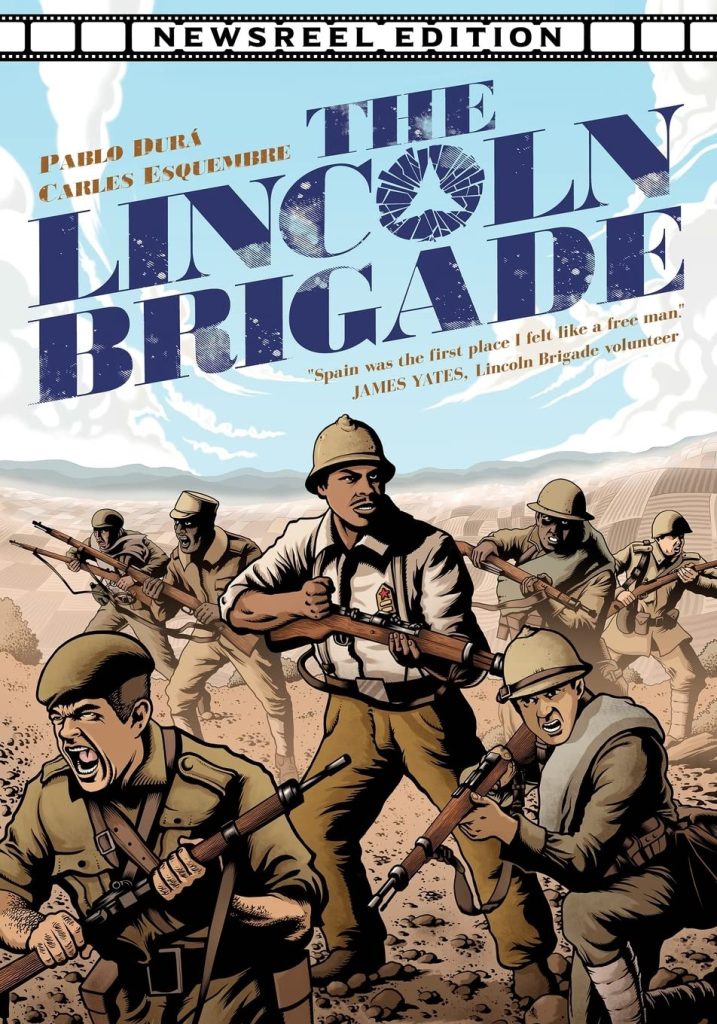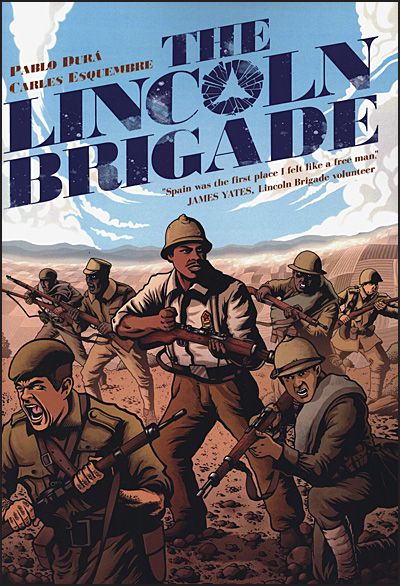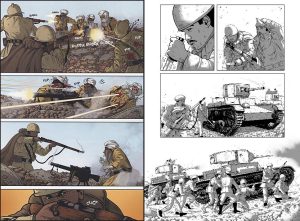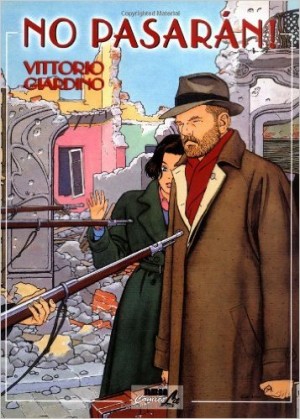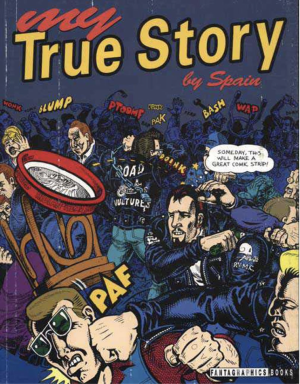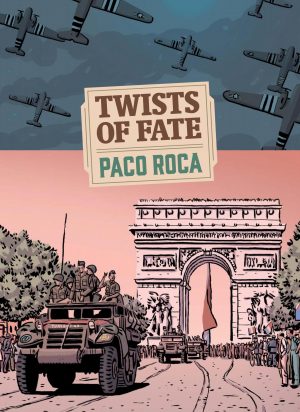Review by Ian Keogh
In 1937 people from all over Europe joined the ultimately unsuccessful fight against fascist rebels in Spain. It’s not as well known, although certainly documented, that almost 3000 Americans were also part of the International Brigade. The Lincoln Brigade puts their story into the spotlight as personalised by African American Oliver Law. Law’s political awareness began in Chicago via association with the local Communist party’s marches for jobs during the depression. He became an activist, and that path led him to Spain.
Rather than using explanatory captions, Pablo Durá opts for made-up dialogue, which has a couple of major drawbacks. Firstly the explanations have to be included in the dialogue, meaning in places the conversations are for the benefit of readers, and even some talks intended as natural sound false. The connected matter is it being unclear whether Durá’s employing fictional constructs to embody actual events. An opening couple of pages sensationalising Law being haunted by ghosts doesn’t help, and neither does an introduction and an afterword mentioning organisations, not individuals. Online consultation is needed to verify Law was a genuine combatant.
Anyone not having the above concerns will be sucked into Law’s circumstances far more rapidly. He’s delivered as a decent man who cares for humanity, and one whose principles take him far further than most of us would go. Never mind other experiences, just the trip across the Pyrenees from France to Spain at night in freezing conditions is a journey to tell for years to come. Other anecdotes transmit as real.
There’s a delicacy to the art of Carles Esquembre, who ensures we come to know people and where they are at any given time. A little stiffness to them is a small price to pay for the effort put in overall. The real test comes in the combat scenes, and despite a conventionally attractive style, Esquembre brings home the full horror of fighting for your life against an enemy able to kill from distance.
History reveals that despite all the good intentions Franco’s Republicans, armed by Germany and Italy, won in the end, and Franco ruled Spain for the next thirty years before restoring the royal family. There’s a consensus among historians that this would have occurred even without the limitations the International Brigade were hampered by. It’s a salient lesson in how important administrative efficiency is. Providing the wrong sized bullets to desperately short supplied soldiers is likely to result in two sets of senseless deaths, those of the people sent the wrong bullets, and those they should have gone to.
In Spain, Law became the first African American to command American troops, this occurring a full decade before the US army integrated the ranks, an achievement that should be more widely known. He’s seen mixing with names still famous today, and Durá opts for a realism in showing how doubts and fear are widespread in a combat zone, which feeds an ending that’s too fanciful, although the epilogue restores some dignity.
Despite reservations, The Lincoln Brigade is a well-intentioned and informative spotlight on someone who would never have considered his place in history, but who serves as an example to us all. This reportage comes in two editions, the black and white paperback Newsreel Edition and a colour hardcover.
